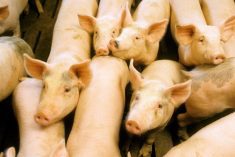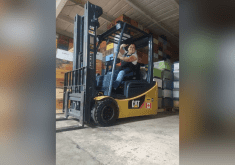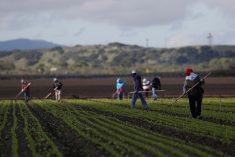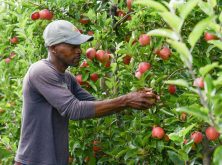A union representing thousands of Canadian food workers says “consistency and enforcement” remain a problem when it comes to responses for its members during the COVID-19 pandemic.
Derek Johnstone, special assistant to the national president of the United Food and Commercial Workers Union of Canada (UFCW), told a parliamentary committee on Feb. 18 that the past year has “not been easy for food workers.”
“For good reason, many of our members have been afraid to go to work. They are afraid to get sick; they are afraid to bring the virus home to their families. Thousands of our members have tested positive, a number have been hospitalized, and some have died,” he said.
Read Also

Mazergroup’s Bob Mazer dies
Mazergroup’s Bob Mazer, who helped grow his family’s company into a string of farm equipment dealerships and the main dealer for New Holland machinery in Saskatchewan and Manitoba, died July 6 from cancer.
Johnstone said the Canadian Food Inspection Agency (CFIA), tasked with regulation and enforcement of food production, has made clear its role “is to ensure the safety of the food in the plant, not the people in the plant.”
CFIA has left decisions about plant openings and closings, as well as many other health measures taking place within food-processing facilities, to local health authorities. Provinces are responsible for those local health authorities, and Johnstone says there have been “mixed experiences throughout the pandemic” with some of them.
In his testimony to the Standing Committee on Agriculture and Agri-Food, currently studying processing capacity in Canada, Johnstone said line speed is the “elephant in the room” for worker safety, even before the pandemic.
He said the speed of the production line has made physical distancing practically impossible, and for many years has been the leading cause of repetitive strain injuries and mental health issues for many members.
It continues to put workers at risk, he warned.
“Really, as long as the line keeps rolling at a top speed, you can’t really do anything about the density on the floor. In terms of an outbreak, it’s a bit of a ticking time bomb,” he said.
Outbreaks have occurred at several processing plants around the country, resulting in extended closures and, in some instances, employee deaths.
The union, which counts 250,000 members, also took issue with the growth of the temporary foreign worker program.
“UFCW is very concerned about the exponential growth of the temporary foreign workers program in recent years. We strongly recommend a more varied approach to the situation facing our industry, one that prioritizes the expansion of federal and provincial nominee programs and one that makes sure that Canadians are fully aware of the opportunities and pathways that exist in the food-processing sector,” he said. “Government needs to ensure that investments are being made in developing domestic labour markets.”
Some MPs pushed back on this when they had the opportunity to question Johnstone, citing the significant need for labour needed each year and a new federal pilot program aimed at fast-tracking 2,700 temporary agri-food workers to permanent resident status.
But Johnstone continued to argue there isn’t enough being done to promote the good union jobs available in the sector.
“I don’t accept the notion that all underemployed or unemployed Canadians and permanent residents and people who’ve taken themselves out of the labour market are aware of all these opportunities in the food-processing sector,” he said.
Johnstone argued that having temporary foreign workers repeatedly coming to work and then leaving is putting migrants “on a hamster wheel” that serves “nobody’s interest.”
“If we’re going to build security and stability and longevity in our sector, we need to allow people to come here to lay roots and build lives; that’s key,” he said, adding the federal pilot project isn’t ambitious enough and still requires a high level of criteria before migrants qualify.




















